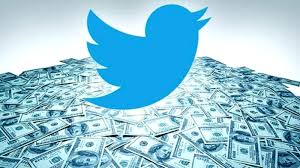Insights
Cost and Worth of A Tweet.

By Ryan Myers and Joshua Benjamin
In a world where news breaks in 280 characters or less, organizations are the most successful when they respond quickly and authentically to organic moments. Meanwhile, the biggest blunders on social media often spring from what should’ve been thought-out marketing campaigns. It raises a question: are time and investment into complex marketing campaigns really worth it when a small, smart responsive social media team can accomplish just as much—if not more? Consider what happened at the 2017 Emmy’s when comedian Dave Chappelle spoke about DC Public Schools while presenting. Chappelle, a D.C. native, said the shout out was something he did impromptu in the moment. DC Public Schools hadn’t planned or prepared for this—but they responded beautifully with a Twitter storm of positive reactions to Chappelle’s comments. Wendy’s also organically made social media history after a student from Nevada asked the restaurant how many retweets it would take for him to get a year of free chicken nuggets. Their quick, simple response, “18 million,” showed that they care about having fun with their audience members, and the tweet went on to be one of the most retweeted posts on Twitter. Being responsive and genuinely caring about your customer needs shows your devotion to giving them the service they deserve. Now consider the most recent campaign from Dove. Though it was intended to showcase the “diversity of real beauty,” the video included imagery that was racially insensitive. The campaign saw immediate social media backlash and the company apologized for the flawed campaign on Twitter. Given the amount of time, energy and effort required to produce a marketing campaign, however, that same apology doesn’t pass muster when these efforts solely miss the mark. It’s harder to say a campaign worked on for multiple months by multiple people with the investment of multiple thousands of dollars is not a reflection of the company’s beliefs and decisions. The lesson, of course, isn’t that social media teams don’t make mistakes and that marketers do. People understand social media is fast and messy. They get mad about mistakes and insensitive comments on Twitter as well—but the immediacy and authenticity of Twitter gives companies the benefit of the doubt that missteps were made by individuals, and that they weren’t carefully thought through and they don’t reflect company values. It’s not really a question of if, but of when we’ll get the next public case study on the cost efficient benefits of a smart, savvy responses on social media or the costly risks of advertising efforts that go awry. The question that companies need to ask themselves is, which of these case studies do you want to be?